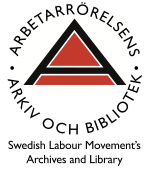By Susan Zimmerman
In the interwar period the ILO, as it established a whole set of international instruments of gendered labour policy (and was reluctant to establish others), became a key actor promoting the development of gendered global governance for a deeply divided world. In the process various actors, including those who were more or less directly represented within the ILO as well as a number of internationally active women’s organizations and committees, were able, to varying degrees, to exert influence on these unfolding international policies.
This paper juxtaposes the international argument on the question of material support for (otherwise) unpaid care activities of woman workers, other women, or families with the regulation of the relationship in non-self-governing territories between subsistence labour within the ‘native community’ and paid work. In the industrial context, the ILO conceived of unpaid labour as a task that was not to be defined as work and was performed exclusively by women. Internationally organized women, while disagreeing amongst themselves on how to deal with women’s unpaid care labour in industrial societies, were much more inclined than the ILO to conceive of domestic labour as women’s work that was to be valued in some way. In contrast, the ILO and the internationally organized women readily agreed that subsistence labour, ubiquitous in non-self governing and ‘special’ countries and performed by both women and men, was work that was essential for the survival of ‘native’ populations. The International Labour Office took a leading role in promoting international labour law which sought to remould the gendered division of labour between ‘native’ women and men in both the subsistence economy and exploitative labour in the service of private and public enterprise.
Susan Zimmermann is University Professor of History at the Central European University in Budapest. In recent years her work has focused on the history of international labor policy and the international politics of class, gender and ‘race’ as pursued by various international organizations and networks in the 19th and 20th centuries.
Plats: Arbetarrörelsens Arkiv och Bibliotek, Elektronvägen 2, 141 49 HUDDINGE (Pendeltåg: Flemingsberg)
Seminariet hålls på engelska, ingen föranmälan krävs.
För mer information, skicka mail till jonas.soderqvist[a]arbark.se

